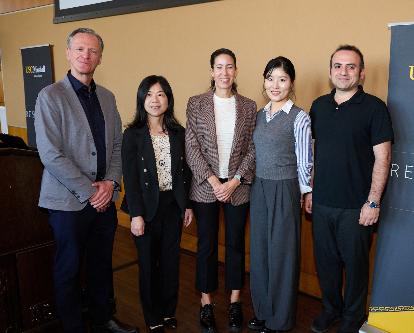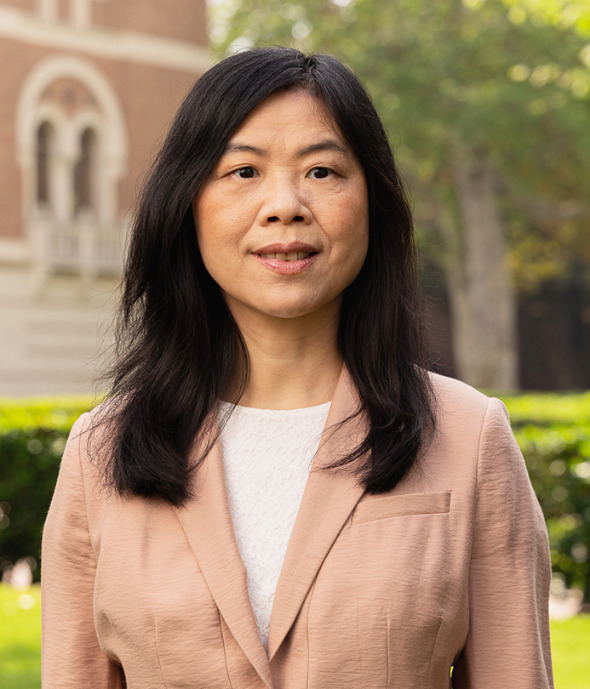
USC Marshall Faculty Present Latest Findings at Annual Research Fair
Faculty from across five departments at the business school offered research on behavioral economics, data privacy, AI, gender participation, and causal inference.
Sha Yang is the Ernest Hahn Professor of Marketing at the Marshall School of Business, University of Southern California. Professor Yang’s research centers on understanding interdependencies and spillovers in preferences, behaviors, and decision-making. Her work delves into the social influences exerted by family members, neighbors, friends, and other consumers in general. Additionally, she has studied competition in contexts such as advertising, pricing, and platform growth. Her recent research interests include causal inference and topics within the media and entertainment industries. Her scholarly contributions have been widely published in top-tier journals. Professor Yang has been an Associate Editor for Journal of Marketing since 2017, and served as an Associate Editor for Marketing Science during 2017-2024. She received honors such as the Marketing Science Institute Young Scholar and grants from various institutions. She served as the Vice Dean and Senior Vice Dean for Faculty and Academic Affairs of the Marshall School of Business during 2020-2023. She is currently a VP for the INFORMS Society for Marketing Science.

NEWS + EVENTS
COURSES